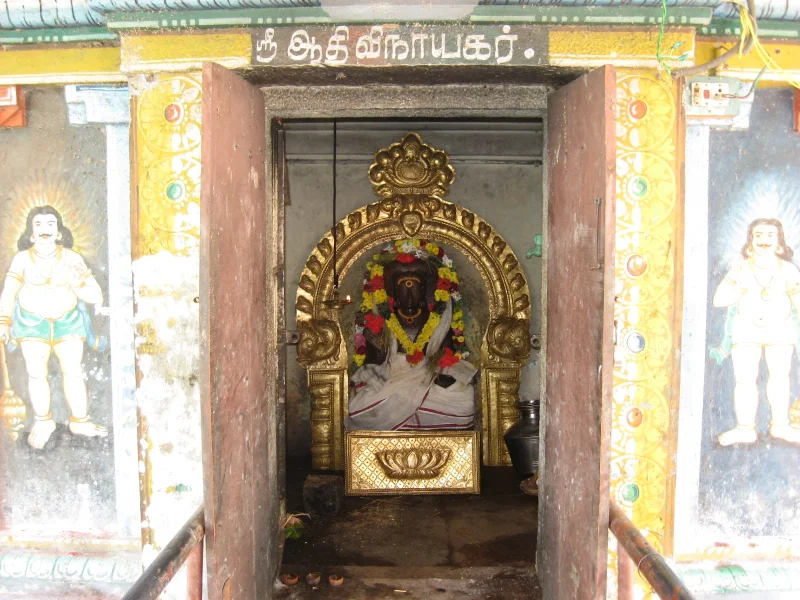P.J.
0
According to a story from Bhagavata Purana, the Four Kumaras, Sanaka, Sanandana, Sanatana, and Sanatkumara who are the manasaputras of Brahma (sons born from the mind or thought power of Brahma), visit Vaikuntha, the abode of Vishnu, to see him.
Due to the strength of their tapas, the four Kumaras appear to be mere children, though they are of great age. Jaya and Vijaya, the gate keepers of the Vaikuntha interrupt the Kumaras at the gate, thinking them to be children. They also tell the Kumaras that Sri Vishnu is resting and that they cannot see him now. The enraged Kumaras replied Jaya and Vijaya that Vishnu is available for his devotees any time, and cursed both the keepers Jaya and Vijaya, that they would have to give up their divinity, be born as mortals on Earth (bhuloka, or physical plane), and live like normal human beings. Vishnu appeared before them, and the gatekeepers requested Vishnu to lift the curse of the Kumaras. Vishnu says curse of Kumaras cannot be reverted. Instead, he gives Jaya and Vijaya two options. The first option is to take seven births on Earth as a devotee of Vishnu, while the second is to take three births as his enemy. After serving either of these sentences, they can re-attain their stature at Vaikuntha and be with him permanently. Jaya and Vijaya cannot bear the thought of staying away from Vishnu for seven lives. As a result, they choose to be born three times on Earth even though it would have to be as enemies of Vishnu. (This story is also used as a metaphor about the cost of committing transgressions in "The Gospel of Sri Ramakrishna".)
In the first life they were born as Hiranyakashipu and Hiranyaksha in the Krita Yuga, to Diti (daughter of Daksha Prajapathi) and sage Kashyapa.
Here one may argue that Jaya and Vijaya failed to recognize the Kumaras and thereby failed in their duty.
The Punishment meted out to them is too severe.
But the same logic and yardstick was not used when Lord Shiva cut off the head of Lord Ganapathy who was like Jaya and Vijaya only doing his duty of guarding the entrance on the orders of Ma Parvathi.
Lord Shiva , being Supreme, could very well recognized why Lord Ganapathy did not allow Him to enter.
Due to the strength of their tapas, the four Kumaras appear to be mere children, though they are of great age. Jaya and Vijaya, the gate keepers of the Vaikuntha interrupt the Kumaras at the gate, thinking them to be children. They also tell the Kumaras that Sri Vishnu is resting and that they cannot see him now. The enraged Kumaras replied Jaya and Vijaya that Vishnu is available for his devotees any time, and cursed both the keepers Jaya and Vijaya, that they would have to give up their divinity, be born as mortals on Earth (bhuloka, or physical plane), and live like normal human beings. Vishnu appeared before them, and the gatekeepers requested Vishnu to lift the curse of the Kumaras. Vishnu says curse of Kumaras cannot be reverted. Instead, he gives Jaya and Vijaya two options. The first option is to take seven births on Earth as a devotee of Vishnu, while the second is to take three births as his enemy. After serving either of these sentences, they can re-attain their stature at Vaikuntha and be with him permanently. Jaya and Vijaya cannot bear the thought of staying away from Vishnu for seven lives. As a result, they choose to be born three times on Earth even though it would have to be as enemies of Vishnu. (This story is also used as a metaphor about the cost of committing transgressions in "The Gospel of Sri Ramakrishna".)
In the first life they were born as Hiranyakashipu and Hiranyaksha in the Krita Yuga, to Diti (daughter of Daksha Prajapathi) and sage Kashyapa.
Here one may argue that Jaya and Vijaya failed to recognize the Kumaras and thereby failed in their duty.
The Punishment meted out to them is too severe.
But the same logic and yardstick was not used when Lord Shiva cut off the head of Lord Ganapathy who was like Jaya and Vijaya only doing his duty of guarding the entrance on the orders of Ma Parvathi.
Lord Shiva , being Supreme, could very well recognized why Lord Ganapathy did not allow Him to enter.

